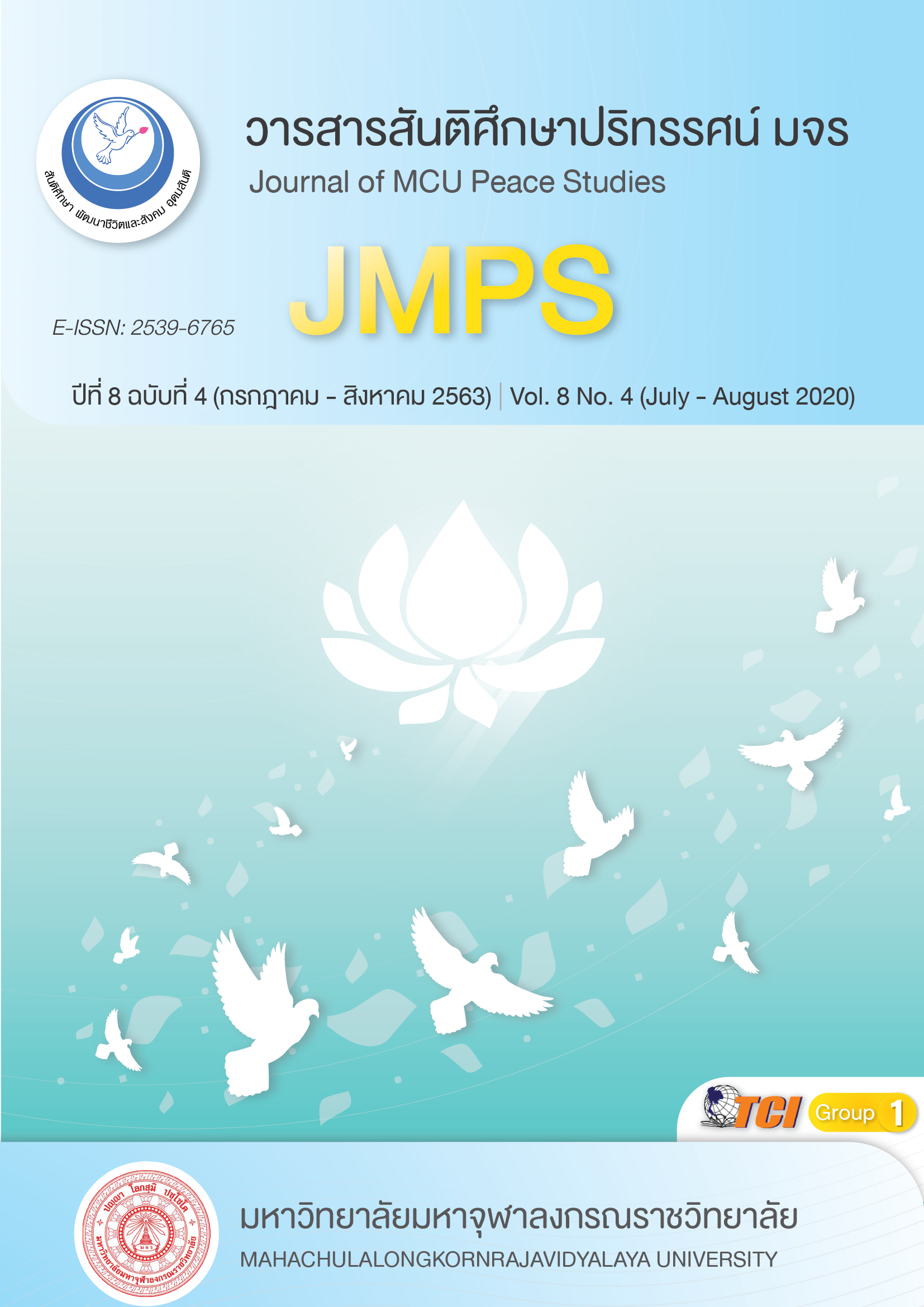A Developing Model for Living Quality of people in Phrae Province
Main Article Content
Abstract
This article has the objectives 1) To study the quality of life of the people in Phrae Province 2) Analyze the factors that influence the quality of life of the people in Phrae Province 3) Create Development model of the quality of life of the people in Phrae Province. This research is a combination research between quantitative research and qualitative research. The samples used in the research were people living in Phrae Province living in 8 districts, 450 subjects, by specifying samples with Yamane formula at the 95 percent confidence level, the data was analyzed using descriptive statistics. Element analysis. Plural regression analysis for qualitative research. Use focus group meetings to analyze content analysis with representatives of relevant agencies at the provincial level and community leaders, consisting of 10 experts, administrators or officials of agencies responsible for improving the quality of life of the people in Phrae Province, consisting of 30 people and the people of Phrae Province from 50 districts. The findings as follows: 1) The overall quality of life of the people in Phrae Province is at a high level. 2) Factors that influence the quality of life of people in Phrae Province, found that community and society factors that are the quality of life development project in the province, personal factors that are civil servants and family factors that have monthly income 15,001 - 20,000 baht are factors that have a positive influence on the quality of life of the people in Phrae Province. As for personal factors aged 31-40 years, primary education and aged 51 years and over is a factor that negatively affects the quality of life of the people in Phrae Province. The variables that explain the variance of the quality of life of the people in Phrae Province is 99.7%. 3) The model of quality of life development of the people in Phrae Province consist of the principles of quality of life development, the process of quality of life development and the step of quality of life development of people in Phrae Province.
Article Details
Views and opinions expressed in the articles published by The Journal of MCU Peace Studies, are of responsibility by such authors but not the editors and do not necessarily reflect those of the editors.
References
Development of Indicators Quality of Life and Thai Society. Bangkok: The Thailand Research Fund
Khemmani, T. (2008). The Science of Teaching: Knowledge for Organising Effective Learning Process. (8th ed). Bangkok: Darnsutha Press Co., Ltd.
Ngammeerith, N., Rareukchat, W., Phowan, N. (2018). A Model of Quality of Life Development of the Elderly in Central Region by Using Recreation. Academic Journal Institute of Physical Education, 10(1), 127-142
Office of the National Economic and Social Development Council. (2016). The National
Economic and Social Development Plan no. 12 (2017-2021). Bangkok: Office of the
Prime Minister
Office of the National Economic and Social Development Council. (2017). Summary the Twelfth National Economic and Social Development Plan. Retrieved January 5, 2019 from
https://www.nesdb.go.th/ewt_dl_link.php?nid=6421&filename=index
Phrae Province Office. (2018). Phrae Provincial Development Plan 2018 - 2021. Phrae: Strategy and Information for Provincial Development.
Srisa-ard, B. (2000). Research in Measurement and Evaluation. Bangkok: Suwiriyasarn Co., Ltd.
Tirakanant, S. (2003). The use of statistics in social sciences: guidelines. Bangkok: Chulalongkorn University.
UNESCO. (1981). Quality of Life: An Orientation to Population Education. New York: UNESCO.
WHOQOL Group. (1995). The World Health Organization Quality of life assessment (WHOQOL): Position paper from the World Health Organization. Social Science and Medicine 41: 1403-1409.


